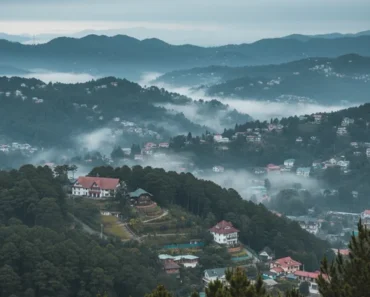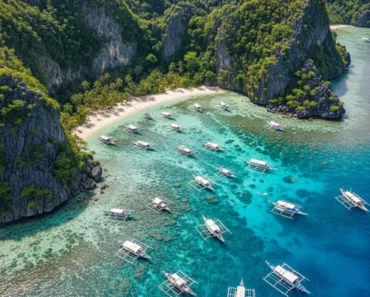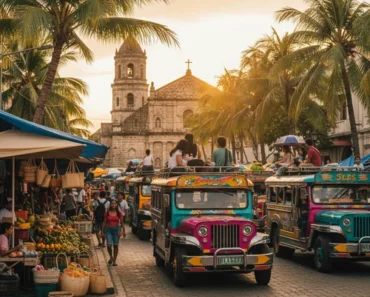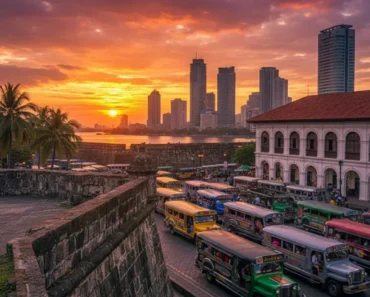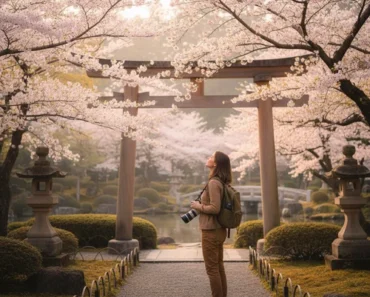Sleep tourism – Have you heard this term before?
Well, it’s a new trend in travel industry that is more focused on providing better sleep and relaxation to the travelers.
In an age of constant digital connection, rising work demands, and chronic sleep deprivation, more people are hitting a breaking point—both physically and mentally. Amid this global sleep crisis, a new trend has quietly emerged and is gaining significant momentum – Sleep tourism. No longer just about sightseeing or beach lounging, these new-age vacations are designed to help travelers do something they desperately need but rarely prioritize – get a good night’s sleep!
As surprising as it may sound, sleep has become a luxury. According to the World Sleep Society, nearly 45% of the global population suffers from sleep-related issues, including insomnia and disrupted sleep cycles. In response, luxury hotels, wellness retreats, and even airlines are stepping in with science-backed sleep-focused experiences that aim to restore rest, recharge the mind, and elevate overall health.
Let’s explore the growing phenomenon of sleep tourism, its benefits, the best destinations, and the data driving this unique travel experience.
What Is Sleep Tourism?
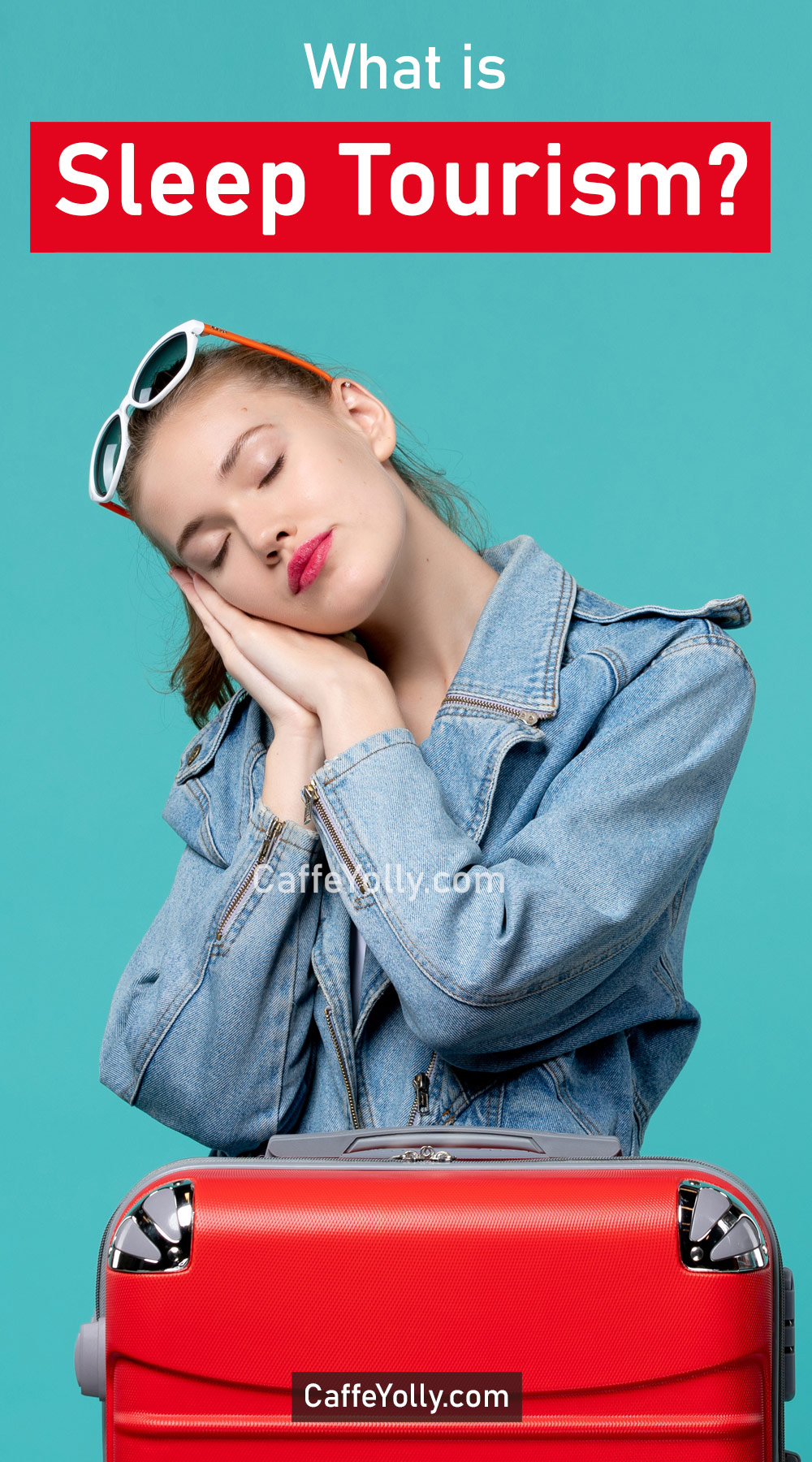
Sleep tourism refers to vacations or travel experiences specifically designed to improve and enhance sleep quality. These may include:
- Sleep wellness retreats
- Hotel stays with sleep-focused amenities
- Programs offering cognitive behavioral therapy for insomnia (CBT-I)
- High-tech rooms with soundproofing, aromatherapy, and sleep tracking
Unlike typical vacations where activities often disrupt rest, sleep tourism focuses on restorative travel, encouraging guests to unwind, detox from digital devices, and engage in habits that promote deep, uninterrupted sleep.
Why Is Sleep Tourism on the Rise?
Let’s watch this helpful video that explains why sleep vacations and sleep tourism is becoming popular. It also discusses the sleep tourism trends.
Several global trends are driving the growth of sleep tourism:
1. Worsening Sleep Habits
Stressful work schedules, constant exposure to screens, late-night scrolling, and lifestyle-related issues like caffeine consumption or irregular routines have made restful sleep a rarity. According to studies, adults today sleep 1–2 hours less on average than people did just a few decades ago. Chronic sleep deprivation is linked to fatigue, anxiety, weight gain, and reduced productivity. As people recognize the impact of poor sleep on health and wellbeing, they are actively seeking ways to restore healthy sleep cycles.
With worsening sleep habits, consumers are turning to sleep retreats and specialized accommodations where the entire environment—room design, lighting, soundproofing, air quality, and even personalized sleep therapies—is engineered for rest.
uxury resorts and boutique hotels are capitalizing on this demand by offering sleep-focused packages: sound bath sessions, aromatherapy, melatonin-friendly menus, blackout rooms, AI-driven sleep trackers, and guided relaxation programs. For example, wellness resorts in Switzerland, Bali, and Thailand promote sleep-inducing environments with meditation, yoga, and spa treatments tailored for better rest.
2. Increased Awareness of Mental and Physical Wellness
In recent years, growing awareness of mental and physical wellness has played a key role in the rise of sleep tourism. People are realizing that good health is not just about diet and exercise but also about quality rest. As stress, burnout, and technology-driven lifestyles take a toll, sleep is increasingly seen as a vital pillar of overall wellbeing. This shift has made travelers more mindful of how rest impacts mental clarity, emotional balance, and physical recovery.
Hotels and resorts around the world are responding by designing specialized sleep-focused experiences. From blackout rooms and noise-free environments to guided meditation, aromatherapy, and sleep-inducing spa treatments, these wellness-driven offerings are tailored to help guests restore their natural sleep cycles. Luxury retreats in destinations like Switzerland, Bali, and Thailand even combine yoga, nutrition, and mindfulness therapies with sleep programs, emphasizing the mind-body connection.
For many, travel is no longer just about adventure or sightseeing—it is about healing and rejuvenation. By aligning with this wellness movement, sleep tourism provides a sanctuary where travelers can disconnect from daily stress, reset their biological rhythms, and return home refreshed. Increased wellness awareness has, therefore, transformed sleep into a sought-after travel experience.
3. Advancements in Sleep Science
Advancements in sleep science have significantly fueled the growth of sleep tourism, transforming the way people approach rest during travel. Modern research highlights the impact of sleep on immunity, mental health, and longevity, creating greater demand for scientifically backed solutions. Resorts and hotels are now incorporating these findings into specialized programs that go beyond comfortable beds.
Technological innovations such as sleep trackers, circadian lighting, sound therapy, and AI-driven room adjustments allow travelers to experience evidence-based methods for improving rest. Wellness retreats often collaborate with sleep scientists and medical experts to design personalized packages that include sleep assessments, cognitive-behavioral techniques, and relaxation therapies.
By blending hospitality with science, destinations offer travelers more than relaxation—they provide data-informed, restorative sleep experiences. This scientific credibility not only enhances guest satisfaction but also positions sleep tourism as a serious wellness solution rather than just a luxury trend.
Sleep Hotels – Top Global Destinations for Sleep Tourism
Below are the details of a few top-rated sleep hotels in the world where you can spend your sleep vacations.
1. Six Senses Zighy Bay, Oman
Six Senses Zighy Bay in Oman is a global sleep tourism favorite due to its unique blend of serene environment, expert-led wellness programs, and compelling pricing:
Nestled between the dramatic Hajar Mountains and the Gulf of Oman, this all-villa resort immerses guests in tranquil luxury. Its signature Sleep Program—including sleep tracking, personalized consultations, yoga nidra, meditation, holistic massages, Shirodhara, and nutritional guidance—starts at OMR 356 per person (approx. USD 900) for couples, with enhanced packages reaching OMR 785 per person.
- A 3-night Sleep Retreat in a private villa begins at USD 5,095, offering comprehensive sleep-centric therapies and wellness amenities.
- Nightly rates for standard rooms start around USD 876 per night
With this scientifically-informed approach, lavish villa experiences, and dramatic natural surroundings, Six Senses Zighy Bay has carved out a leading niche in the sleep tourism sector.
2. The Cadogan, A Belmond Hotel – London, UK
The Cadogan, A Belmond Hotel in London has risen as a global sleep tourism destination thanks to its exclusive Sleep Concierge offering. In partnership with renowned hypnotherapist Malminder Gill, over 70% of the UK population has reportedly struggled with insomnia recently.
- The program includes in-room sleep-inducing meditation via the hotel app, a pillow menu, weighted blankets, bespoke bedtime tea, and pillow mist.
- Room rates start from around £530 per night, with optional one-on-one hypnotherapy sessions available from £500
- Blending science-backed rest resources with luxury accommodations, The Cadogan offers a richly curated, restful city-stay in Chelsea.
3. Park Hyatt New York, USA
Park Hyatt New York stands out as a premier global sleep tourism destination by expertly combining luxury hospitality with cutting-edge sleep science. Its signature Bryte Restorative Sleep Suites, spanning 900 ft², feature AI-powered Bryte beds that monitor sleep stages, adjust firmness and temperature, and even gently wake guests—all personalized via guest profiles.
- Each suite is equipped with a curated “Sleep” essential-oil blend, Vitruvi diffuser, Nollapelli linens, sleep masks, and a mini library of slumber-focused books.
- Rates for this sleep-focused sanctuary begin at around $1,445 per night.
With its blend of AI-enhanced bedding, ambient wellness amenities, and a serene retreat in the heart of Manhattan, Park Hyatt New York caters to travelers seeking restorative, science-backed sleep experiences.
4. SHA Wellness Clinic, Spain
SHA Wellness Clinic in Spain has become a premier global destination for sleep tourism, blending holistic wellness, medical diagnostics, and tranquil luxury. Nestled on the Costa Blanca with an ideal microclimate recognized by the WHO, it combines Mediterranean serenity with cutting-edge sleep programs.
- The “Sleep Well” add-on—featuring medical consultations, nocturnal polygraph testing, neuro-technical sessions, acupuncture, mindfulness, and tailored supplements—starts at €1,650 (approx. USD 1,850), excluding lodging.
- A full 7-night “Sleep Recovery” retreat—including suite accommodation and wellness amenities—ranges from USD 6,268–9,518 per person depending on suite type.
- With a repeat-visitor rate of around 55%, it underscores the clinic’s effectiveness and appeal.
SHA’s reputation for personalized, expert-led programs, medical-grade diagnostics, and stunning setting makes it a standout choice for those seeking transformative, sleep-centered wellness.
5. Svart Hotel, Norway (Opening Late 2025)
Six Senses Svart, set to open in late 2025 near the Svartisen glacier, is poised to redefine sleep tourism through its pioneering energy-positive design and immersive wellness amenities. The 94-room, circular hotel—elevated on poles above Holandsfjorden—uses 85 % less energy than typical hotels and will generate more power than it uses.
Rooms feature intuitive “Svart Touch” ambient controls, optimizing lighting, temperature, and tranquility
Though final pricing isn’t published, the hotel’s eco-luxury ethos and remote Arctic Circle setting suggest premium rates. This seamless blend of sustainability, serenity, and smart rest technologies makes Six Senses Svart a compelling retreat for sleep-focused travelers.
Benefits of Sleep Tourism and Sleep Vacations
1. Restoring Natural Sleep Cycles
One of the biggest benefits of sleep tourism and Sleep vacations is the chance to reset the body’s circadian rhythm. Modern lifestyles filled with late-night screen time, stress, and irregular routines disrupt natural sleep patterns. Sleep retreats create environments that encourage rest, such as dark, noise-free rooms, meditation sessions, and wellness therapies. By removing distractions and aligning travelers with natural rhythms, sleep tourism helps individuals return home with improved sleep quality and healthier habits.
2. Reducing Stress and Mental Fatigue
Sleep tourism often combines mindfulness practices like yoga, breathing exercises, and guided meditation with sleep-enhancing therapies. These practices reduce stress hormones like cortisol, helping travelers feel calmer and more balanced. By addressing both mental and physical fatigue, sleep-focused vacations allow guests to recharge deeply. Studies show that even a few days of structured relaxation can lower anxiety levels and boost overall mental health, making sleep tourism particularly appealing for professionals dealing with burnout.
3. Supporting Physical Recovery
Quality sleep is crucial for the body’s repair processes, including muscle recovery, immune function, and hormonal balance. Sleep retreats often integrate nutritional programs, spa treatments, and fitness routines tailored to aid recovery. For athletes or individuals with physically demanding lifestyles, sleep tourism provides a scientifically supported way to enhance recovery and boost long-term health. In many resorts, guests undergo sleep tracking or medical assessments to personalize their rest and healing experience.
4. Promoting Digital Detox
Another significant advantage is the opportunity to disconnect from technology. Many sleep-focused resorts encourage guests to reduce or completely avoid screen time, replacing it with nature walks, journaling, or spa therapies. This digital detox reduces overstimulation, allowing the brain to rest fully. For travelers overwhelmed by constant emails, social media, and notifications, this break from technology is a refreshing reset.
5. Enhancing Travel with Purpose
Unlike traditional vacations that can sometimes leave travelers feeling more exhausted, sleep tourism offers a purpose-driven escape. Guests return home not only with memories but with better health, improved sleep routines, and practical tools to maintain them. By combining luxury, wellness, and science-backed therapies, sleep tourism transforms travel into a holistic investment in personal wellbeing.
Technology Meets Tranquility: AI and Sleep
Modern sleep-focused hotels are increasingly integrating AI and wearable technology to create personalized, science-backed rest experiences. These innovations not only enhance comfort but also allow travelers to monitor and improve their sleep quality in real time. Key integrations include:
- AI-Driven Smart Beds – Beds like the Bryte Restorative Sleep Bed adjust firmness, temperature, and support throughout the night, based on the guest’s movements and sleep stages.
- Wearable Sleep Trackers – Devices such as Oura Rings or smartwatches monitor heart rate, oxygen levels, and sleep cycles, feeding data into personalized wellness programs.
- Circadian Lighting Systems – AI-controlled lights simulate natural daylight patterns, helping reset the body’s internal clock and combat jet lag.
- App-Connected Wellness Programs – Guests receive tailored recommendations, from meditation guides to breathing exercises, based on wearable data.
By merging luxury hospitality with cutting-edge sleep science, hotels are transforming rest into a customized, data-driven experience.
Who Is Booking Sleep Vacations?
Sleep vacations are attracting a wide range of travelers as poor sleep becomes a modern epidemic. From busy professionals to health-conscious individuals, different groups are embracing sleep-focused getaways for rest, recovery, and rejuvenation. Key demographics include:
- Stressed Professionals – Executives and entrepreneurs seeking relief from burnout, long hours, and constant digital connectivity.
- Health & Wellness Travelers – Individuals focused on holistic wellbeing who view quality sleep as essential to fitness, immunity, and longevity.
- Couples & Families – Those looking for restorative escapes that balance relaxation with bonding time in a stress-free environment.
- Athletes & Fitness Enthusiasts – People who require deep sleep for muscle recovery, performance, and overall physical health.
- Older Adults – Guests managing insomnia, age-related sleep changes, or health issues that disrupt rest.
By offering tailored experiences, sleep tourism caters to travelers who now prioritize rest as much as adventure.
The Future of Sleep Tourism
The future of sleep tourism looks incredibly promising as wellness becomes a global priority. With sleep now recognized as a critical pillar of health—equal to nutrition and exercise—the demand for rest-focused travel experiences is expected to surge. Even people from the third world countries are now inclined towards sleep tourism. Industry experts predict that the global sleep tourism market could surpass $400 billion by 2030, fueled by rising mental health awareness, digital fatigue, and lifestyle-related insomnia.
We can expect to see more high-tech “smart rooms” in mainstream hotels, featuring AI-powered beds, circadian lighting, and personalized sleep tracking. Luxury resorts may offer “sleep concierges” and dream coaching, while budget wellness retreats across Asia and South America will make sleep tourism more accessible to middle-income travelers.
Corporate wellness programs may soon include sponsored sleep retreats for employees to prevent burnout and boost productivity. Airlines could even partner with sleep experts to create in-flight rest programs for long-haul travelers.
Final Thoughts on Sleep Tourism
Sleep tourism isn’t just a passing trend—it’s a cultural shift. In a world addicted to productivity, choosing to travel for rest is a radical, restorative act. Whether it’s a high-tech suite in New York, a serene Ayurvedic retreat in Kerala, or an Arctic escape in Norway, one thing is clear – Rest is the new luxury!
As more travelers seek not just adventure but deep, healing sleep, the travel industry is rising to the occasion—redefining what it means to truly recharge on vacation.
